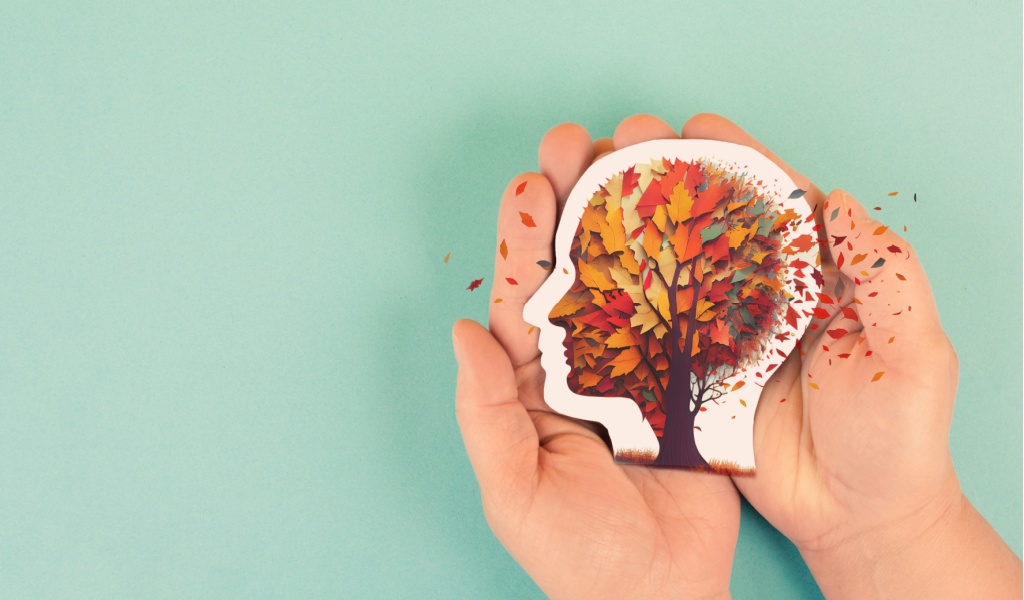The pursuit of happiness is an eternal one, but one nation seems to have cracked the code. Finland has consistently ranked as the happiest country in the world for eight consecutive years, and it’s truly inspiring to see how the people in this beautiful country have cultivated a remarkably positive attitude in life.

Generally, happiness is often attributed to bright skies and plenty of sunshine. However, in Finland, sunshine is in short supply. Even if the Summers are colorful, they’re very short and not always warm. Winters are incredibly long, dark, and cold. In fact, Finland has about 200 days on the calendar that are completely blanketed in snow. So, for a country that has such cold weather, how are its citizens so happy?
Curious to know what could contribute to their happiness? Let’s take a look below and see how we can develop a positive attitude in life, too.
A Strong Connection With Nature
Over 75% of Finland is covered by forests, and Finns are passionate about spending time in nature, irrespective of the season. Winter, snow, or rain has never been an obstacle for them to bask in the glory of nature; instead, it’s just an invitation for them to dress accordingly and spend time in nature’s wonders!
Moreover, Finns have the legal right to wander in natural areas like meadows, lakes, forests, and rivers, and permission is not required from landowners, provided that no damage or disturbance occurs. So if you wish to camp in a verdant field, kayak down a mighty river, or forage in a forest, you’re free to do so. Perhaps one of the reasons Finland ranks as the happiest country in the world is due to its unrestricted access to nature.
Research has shown that spending time outdoors can be beneficial for mental well-being. A study revealed that people who live near forests have better scope to manage their stress and emotions. But don’t worry, you don’t have to live in the forest to find peace and happiness—taking a walk in nature for as little as 10 to 20 minutes can do wonders in lowering blood pressure and heart rate and reducing signs of stress.
The Power Of Support Systems
In Finland, everyone makes sure that everyone else is okay. This communal principle ensures that support systems prevail over hustle culture, which is so predominant in the world today. There are comprehensive social systems in place that enable people to support one another. The Finns live by the concept of “talkloo,” which means working together for the benefit of everyone.
A Strong Connection Between Food and Wellness
To the Finns, cooking is more than just nourishment; it’s about the joy of sharing, forging deep connections, and unleashing creativity. Those who have tried to forage for fresh herbs in the outdoors or cook a freshly caught fish can undoubtedly relate to the level of happiness achieved in the mere act of cooking. The act of slowing down, cooking something with seasonal produce, and being present in the kitchen can make the mundane routine of cooking into a fulfilling ritual that can be shared to bring joy to everyone at the table.

The Sauna Experience
Sauna is a way of life for the Finns, and one of the most common methods they use to unwind. For most people, a lakeside sauna is the ultimate retreat, and the sounds, scents, and warmth of a sauna can cleanse the body and mind. Finland has almost 3.2 million saunas across the country – there’s even one in the Finnish Parliament! Research indicates that regular sauna use can enhance memory, promote improved sleep, and induce deep relaxation.
Excellent Work-Life Balance
Maintaining the boundaries between work and life could be the single most crucial factor contributing to the happiness of the people in Finland. Work-life balance is a top priority, and employees in Finland tend to work fewer hours than those in other countries. Companies offer flexible work schedules, additional holidays, and family-friendly vacation policies.
Employees in Finland have reduced work hours with a typical workweek consisting of 37.5 hours. This allows them to devote more time to their families, personal causes, and recreational activities. Moreover, the flexible working hours allow workers to adjust their schedules to accommodate their commitments. The country’s progressive parental leave laws enable new parents to have up to 158 working days of full-time or part-time parental leave. Fathers are included, so that they can lend their support and involvement in childrearing.
Final Thoughts
There is a Finnish philosophy called sisu that is deeply ingrained in the society and encapsulates what it means to be Finnish. Sisu is translated to mean strength of will and perseverance. This principle is evident in the numerous welfare policies established in the country, alongside an inherent desire for equality, mutual trust, and freedom. This mindset revolves around the concept that one can only be free if everyone else is free and independent.
As a result of all the above, the Finns live in a country where basic needs, such as education, healthcare, and employment, are met. Finland may not be the strongest or richest country in the world, but it excels in the pursuit of happiness in life. There are many lessons to be learned from the Finnish way of life that can help us boost our happiness and well-being as well.



